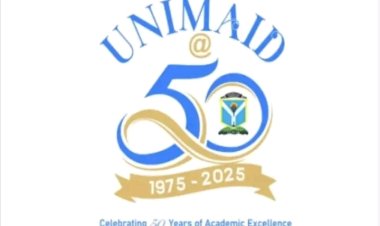WACT Trains 150 Students in Reusable Sanitary Towel Production
Conventional disposable pads are costly, and many girls cannot afford them,” Okwuofu said. He noted that students received additional materials, including reusable pads and four new sewing machines to facilitate continued production.

The West Africa Container Terminal (WACT), in collaboration with Dufy Global, has trained 150 students from Government Secondary School in Onne, Rivers State, to produce reusable sanitary towels as part of the World Menstrual Hygiene Day celebrations.
The initiative, part of WACT’s Menstrual Justice Programme, aims to ensure that girls remain in school and do not miss classes or exams due to menstruation. Additionally, it promotes environmental sustainability through the use of eco-friendly pads.
READ ALSO:No Nigerian University Makes Top 1000 Global Universities Ranking for 2025
Speaking at the event, Justin Okwuofu, WACT's Community Relations Manager, highlighted the programme's focus on health, education, and development. He emphasized the need to break the societal taboo surrounding menstruation.
“When we started the programme in late 2023, our goal was to train students to produce reusable eco-friendly pads. Conventional disposable pads are costly, and many girls cannot afford them,” Okwuofu said. He noted that students received additional materials, including reusable pads and four new sewing machines to facilitate continued production.
RECOMMENDED FOR YOU:Joseph Sarwuan Tarka University Mobilises 8,000 Graduates for NYSC in One Year
Chinelo Obienyem, WACT's Senior People Business Partner, explained that the training not only provided menstrual hygiene education but also empowered the girls with skills and knowledge.Victor Akubor, CEO of Dufy Global, stressed the importance of the training in addressing the social and economic inequalities exacerbated by poor menstrual health.
Clara Wali, the principal of Government Secondary School, Onne, praised the initiative for its humanitarian impact, noting that it would reduce the number of students seeking sanitary pads. Jima Osaronu, a member of the Onne Council of Chiefs, added that the programme would enhance the economic well-being of the community and modernize traditional practices.





